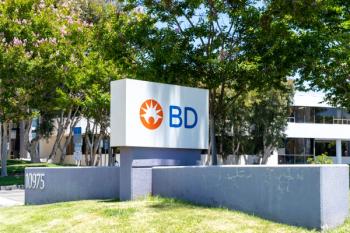
- LCGC Europe-10-01-2016
- Volume 29
- Issue 10
Lab Innovations 2016
Lab Innovations, the UK’s only event dedicated to laboratory professionals, will be held from 2–3 November 2016, at the National Exhibition Centre (NEC) in Birmingham, UK. It will feature an extensive conference programme and highlight a wealth of industry suppliers.
Lab Innovations, the UK’s only event dedicated to laboratory professionals, will be held from 2–3 November 2016, at the National Exhibition Centre (NEC) in Birmingham, UK. It will feature an extensive conference programme and highlight a wealth of industry suppliers.
The show boasts an expanded show floor, with more than 120 exhibiting companies on board, including JSB UK, Strata Technology, Sci-Tek Instruments, Analytix, Buchi UK, Metrohm, and ESSLAB. Many of these companies will be using the show to present their latest products to the UK market
Participants at Lab Innovations will also be able to attend a fourâstream series of free, thought-provoking sessions, totalling more than 35 h of professional content that will seek to tackle the most important and up-toâdate laboratory issues. As part of this, The Royal Society of Chemistry (RSC) will be hosting its two-day conference in its own dedicated theatre. This will feature Jim Al-Khalili, British scientist, theorist, author, and broadcaster, and Greg Foot, science presenter for the BBC, as keynote presenters.
The RSC programme will include plenty of specialist content too. For instance, from a chromatography perspective, wrapping up the first day on the RSC Theatre will be Diane Turner, Senior Consultant and Director at Anthias Consultants. Her training presentation, “Sampling Methods - Splendid, Salubrious, Succinct, or Just Simple?,” will give attendees a taste of the different sampling and sample preparation methods that can be automated onto a gas chromatograph and will include a discussion on how to select the best technique for your application.
Campden BRI, the UK’s largest independent food and drink research body, will also have its own theatre, featuring three presentations on each day and exploring core areas of activity from the food and beverage manufacturing industry, including microbiology, chemistry, and sensory. Its final session will be presented by David Bellis, Analyst - Chromatography, and Danielle Cawdron, Packaging Group Managet at Campden BRI. The session, “From the Lab to the Label: Salt, Sodium, and other Elements,” will explain how food is measured and labelled before exploring element profiles of food, showing where it has come from and what it claims to be. They will also analyze how food is tested for good elements, like selenium and iodine, and for those that are toxic, such as lead and mercury.
For further information about Lab Innovations or to exhibit at the show, please visit
Articles in this issue
over 9 years ago
Extraction of Micropollutants From Size-Limited Solid Samplesover 9 years ago
Readers’ Questions: Gradient Ghost Peaksover 9 years ago
Gas Cylinder Safety, Part 1: Hazards and Precautionsover 9 years ago
Vol 29 No 10 LCGC Europe October 2016 Regular Issue PDFover 9 years ago
Extraction of Micropollutants From Size-Limited Solid SamplesNewsletter
Join the global community of analytical scientists who trust LCGC for insights on the latest techniques, trends, and expert solutions in chromatography.




